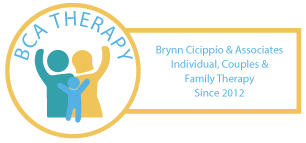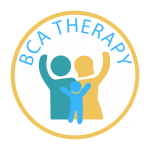
We Cannot Control Others Who Show Up in Our Relationship
We have no control over others behavior, even those we love and care for. We can’t make people be nicer to us, kinder to us, care for us, or love us in the way we envision. What we can do is take care of ourselves, be clear with our needs, and then choose what relationships are healthy for us to maintain and what ones we need to let go.
When we learn how to take care of ourselves first, it will make it easier for us to judge whether we are happy with ourselves. This will also help you see whether those around us are treating us the way we deserve. If you feel you are being treated unfairly when we put ourselves first, you can refrain from speaking or remove yourself from the situation entirely.
Going to counseling can help us build confidence and stay focused on what we can control. Go to therapy can help you take control and help us deal with situations like these we cannot control.
Learn More

Importance of Self-Care in a Relationship
How do you practice self-care in a relationship? Taking care of yourself first should always be your number one priority. If you are not caring about yourself first, how are you supposed to be the best person you can be around your significant other when you are at your best?
Here are some ways to practice self-care in a relationship:
- Setting boundaries. Doing this is very crucial in a healthy relationship because it keeps a balance between you and your partner. This also helps reduce conflict, because it sets an example of what you and your partner expect from each other. This will help bring you and your partner closer together because setting boundaries creates open communication.
- Hanging out with a group of your own friends. It is important to have a social life outside of your relationship.
- Maintaining independence is important in a relationship. Don’t rely on or allow your partner to control your judgement or tell you what to do.
- Let your partner know what you like and don’t like. It’s also difficult and may lead to some conflict. But it is important to say how you feel and eliminate anything that is not making you feel good and don’t like. If something is not making you happy you don’t have to do it and that brings the importance of the word “NO” and setting boundaries.
- Having a hobby. This can create a safe space that makes you happy or time set away from your partner that you like. You don’t always have to be doing everything with your partner. Just get a hobby of your own. For example, doing a craft, gardening, collecting coins, going on a hike by yourself. These are examples of self-care.
When you and your partner practice self-care in a relationship you both will be happier in your relationship. It is not selfish in a relationship, and you and your partner will be happier in your relationship
Learn More

Mental Health during the Holiday Season
These are supposed to be happy times during the holiday seasons. Between everything that may be going on holiday parties, family get togethers, vacations, and celebrating the new year. The holidays can be full of joy, but they can also be stressful and challenging for those impacted by mental health, devastation, or loss of a loved one.
According to NAMI, “You are not alone”, as a 2021 survey showed that three in five Americans feel the holidays negatively impacted their mental health [1].
So, what are ways that we can care for our self during the holiday seasons?
Here are some tips to prevent holiday stress and depression:
- Take care of yourself. This can be done through self-care and forming healthy habits. For example, going on a walk, doing yoga, going to the gym, watching a movie, reading a book or something that can help you feel less worried and take your mind off a stressful environment and help you boost your mental health and deal with stressful activities.
- Ask for help. Talk with a therapist or make plans with a trusted individual, best friend that you can trust, or a trusted family member. Asking for help is not a weakness, it shows that you are strong and have the courage to do so you matter. If you are sad, anxious, depressed, stresses please don’t be afraid to ask for help. BCA Therapy has therapists in Wayne and Yardley that can help you today!
- Focus on what you can control. Don’t worry about things that are out of your control. If something is bothering, you that is out of your control quit worrying about it and thinking about it, there is nothing you can do about it. This will help you relieve a lot of stress and help you focus on what is in your control.
- Avoid drugs and alcohol. Just because everyone around you is drinking doesn’t mean you have too as well. If someone offers you a drink and you don’t want to drink say “NO”. It is important to set boundaries for the holiday season no matter who is around. By avoiding drugs and alcohol you avoid an increase in depression, anxiety, and other mental health issues.
- Identify holiday triggers. Triggers could be people, places, and things that remind you of past trauma or upsetting events. Examples of holiday triggers could be traumatic memories, a narcissist family member, a loss of a loved one, stressful family relationships, or emotional breakups. To avoid holiday triggers put a plan in place ahead of the holidays to avoid these emotional holiday triggers. These plans can put a plan in place to avoid those triggers and help you reduce holiday related stress.
Source:
[1] Mental Health During the Holidays: 8 Tips That Can Help | NU
Learn More

Does No Conflict Equal a Healthy Relationship?
The absence of conflict does not equate to a healthy relationship. By avoiding conflict, you are not able to express your true feelings in your relationship.
When you store up your frustrations and keep them to yourself. This can cause you to feel stressed and anxious. It can also cause negative impacts on your overall health and well-being. Not addressing conflict in a productive manner has impacts on our relationships. We are not being honest with ourselves and the other people in our lives.
Disagreement happens in all relationships, but what matters is how conflict is dealt with. The way you deal with conflict can determine whether a relationship is healthy or unhealthy.
Here are some things to keep in mind when handling your next argument way:
- Really listen to your partner can help prevent misunderstanding and shows them you are really paying attention and caring about what they are saying. Don’t interrupt your partner, don’t speak over them, don’t act like you know what they are saying.
- Develop your assertive side by setting boundaries, speaking directly and calmly, keeping message clear and understandable, and believing in your ability to handle the situation.
- Being calm and respectful during an argument. Be respectful, insult your partner, and don’t cross boundaries. If your partner consistently yells at you, gets heated, gets aggressive, or starts cursing then you most likely are in an unhealthy or abusive relationship.
- Welcome open conversations where you and your partner sit down and communicate openly about what is bothering them and going well in the relationships. If you and your partner can do this without retaliation and becoming defensive, then you are in a healthy relationship.
Sources
- 7 Tips for Handling Conflict in Your Relationship (joinonelove.org)
- 3 Ways to Deal with Conflict in Relationships | Lyra Health
Learn More

Protect Yourself from a Narcissist!
What is important to a narcissist is CONTROL. A narcissist needs control over the situation they’re in. Whether that’s in a relationship, in a social scenario, or something else, a narcissist will manipulate the circumstances to maintain control.
Here are ways to handle a narcissist:
- Set Boundaries. Make sure to let the narcissist know what you are comfortable with and what you are not comfortable with. Just because they don’t care about their boundaries, doesn’t mean you don’t care about your own boundaries. SET CLEAR BOUNDARIES!
- Don’t Engage Emotionally. It is easier to protect yourself from a narcissistic rage if you are out of their reach. You just block a narcissist on social media and change your phone number. But unfortunately, it’s not always possible for everyone, such as ex-spouses who are stuck in co-parenting. If you are in a similar situation hold your inner composure. Stay calm and don’t take it personally. Image you are separated by a mental wall from a narcissist and only use dry facts when talking to them. [1]
- Ignore them. Ignore their rudeness, it gives them no satisfaction, and then they won’t be rude to you and move onto someone else.
- Protect yourself. It is your right to protect yourself and your happiness. Don’t feel wrong because you blocked a narcissist out of your life. They hurt you and did not care how you feel in the first place. Remind yourself that!
- Don’t fight them, it will make the situation worse. Don’t fight a narcissist, as there is no win when fighting a narcissist. They enjoy fighting, and their goal is to control you. They won’t let you have an opinion, and they are always right. Fighting a narcissist is a win for them, and a loss for you.
- Remind yourself that you deserve to be treated with respect. Everyone deserves to be treated with respect and kindness. Be an example for your kids, friends and family. [2]
How can therapy help you with narcissistic abuse recovery?
- Therapy can help you address acute symptoms (self-care, boundaries, and cognitive dissonance).
- It can help you with a divorce from a spouse, who was/is a narcissist.
- Therapy can help provide you with tool and homework for your recovery.
- It can also help identify narcissistic behaviors that are causing problems in your life.
- It will help you exercise your mind.
- It also can offer guidance to help you heal.
If you are looking for therapist that treats narcissistic abuse recovery, gaslighting, trauma, and PTSD. BCA Therapy has therapist that specialize and treat this. Visit BCA Therapy, to learn more about our therapist and schedule an appointment today. Let’s DO THE WORK and recover. We are here with you every step of the way during your recovery.
Sources:
[1] How To Protect Yourself From A Narcissist | Arcadian Counseling
[2] 8 Tips to Protect Yourself From a Narcissist | Psychology Today
Learn More
